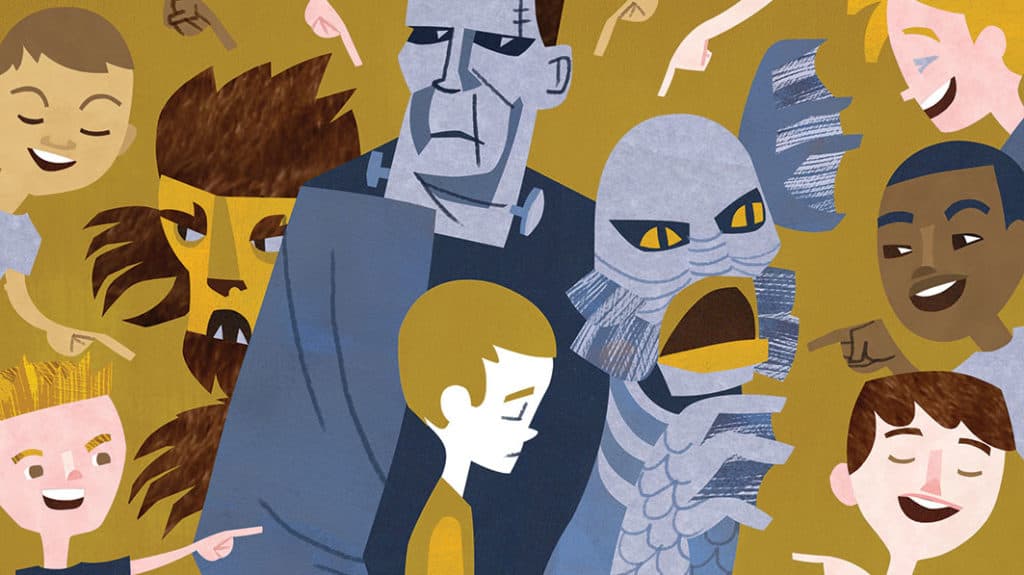
How to Deal With Bullying
How to know if your child is being bullied, and what to do if your child is the one bullying others.

There is a personal and societal cost of bullying.
By the time I was 4 years old, I had endured seven rounds of surgery for cystic hygroma, a disfiguring birth defect. I was small and I talked funny because of my swollen and scabby tongue, but that didn’t matter at home. Mom and Dad always loved me and let me know that I was special. I believed them.
And then . . . I had to go to school.
Children can say some of the funniest things. They also can say some of the cruelest things imaginable. By the end of kindergarten, I’d had quite enough of school and didn’t want to return.
The verbal abuse by other kids was repeated throughout my elementary school years. On one occasion, Mom and Dad complained to the school principal about the teasing. The principal listened attentively and apparently passed the word on to some teachers, but no amount of adult supervision could prevent the school-yard arrows from piercing my heart.
When I was nearly 13, my keenest interest was in monsters — those ugly, misunderstood, abused, captive monsters who escaped from their cages, traps and laboratories, scared people, broke things, and got back at the unfeeling people who abused them. The atomic mutants may have been victims, but they turned around and made victims.
Somewhere in my head, planted there repeatedly over the years, was the notion that I was one of those monsters — ugly, rejected, picked on and somehow less worthy of membership in the world of normal kids. I was entering adolescence, that weird age when the size, shape and appearance of your body mean everything. And everyone seemed to be growing except me.
So it was predictable that some of my classmates would take special pleasure in making my life miserable. I was pushed, shoved, thrown, hit, insulted, badgered, manhandled, teased and harassed.
I grew tired of kids asking, “Ooh, what’s wrong with your tongue?” before they’d even ask me my name. Increasingly, through the eyes of others, I saw myself as a monster.
But my monster friends had one significant advantage I admired and wished I had: They found a way out. They were scarred and ugly, just like me, but if anybody ever knocked their books out of their arms, shoved them in the halls, drew insulting pictures of them or called them names, you can bet ol’ Frankenstein or Phantom or Hunchback could do something about it. They had power over their situation. They had control.
Maybe you can relate. Ever been there?
Hemmed in, you get stabbed every day, and you bleed every day. But wounds can fester. They can become infected, and then they can infect others.
And they can change you because you haven’t merely cut your finger or bruised your knee. You’ve been wounded in your spirit, and that wound pierces deeply, painfully, sometimes even permanently. As Proverbs 18:14 says, “A man’s spirit will endure sickness, but a crushed spirit who can bear?”
I remember what I wished I could do if only I had the strength, the skill in martial arts or the advantage that a baseball bat might give me over the bullies who bludgeoned and batted me verbally and physically.
Instead of retaliation and confrontation, I sloughed off the wounds inflicted by my abusers and retreated to the solitude and safety of my room, where I identified with monsters and tried to get by.
But immersing oneself in make-believe stories about monsters isn’t the only way to deal with the pain and humiliation of being devalued by other people.
Nowadays, kids are devising all sorts of ways to identify with those who feel trapped and put upon, and this new breed of monster will do almost anything for the power to change his situation and get even.
Why is it so important that we address the problem of bullying in our society? Because one in four bullies will end up in the criminal correction system. Because those who have been wounded often become those who wound others. Because we could be allowing the creation of more monsters — the kind you never see, never expect, until they snap and take desperate, violent measures. And all of us — those who have been wounded as well as those who wound others — need healing, forgiveness and a new heart attitude toward our fellow human beings.